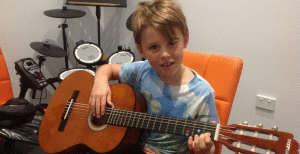Music Practice; fight or fun? 6 words to take away the pain.
 Diligence, Intelligence, Patience, Presence, Attendance and Guidance. You might think that these 6 words describe the ideal music student...well, maybe they do, but they also describe the ideal music student parent...or maybe a combination of both?Attributes: diligence, intelligence, patience: a successful music student has these.Attitudes: : presence, attendance and guidance: successful music parents have these.There is no room for multi-tasking when it comes to music practice. Unless your child is extremely self-motivated his success will be a direct reflection of your presence at lesson, your child's attendance at lesson and your guidance at home. Here's a simple, easy to follow 5 Step Coaching Plan to support your child through his music journey.
Diligence, Intelligence, Patience, Presence, Attendance and Guidance. You might think that these 6 words describe the ideal music student...well, maybe they do, but they also describe the ideal music student parent...or maybe a combination of both?Attributes: diligence, intelligence, patience: a successful music student has these.Attitudes: : presence, attendance and guidance: successful music parents have these.There is no room for multi-tasking when it comes to music practice. Unless your child is extremely self-motivated his success will be a direct reflection of your presence at lesson, your child's attendance at lesson and your guidance at home. Here's a simple, easy to follow 5 Step Coaching Plan to support your child through his music journey.
- Have a thorough two-way discussion about why, when and what your child wants to learn well before contacting any prospective teacher. Be clear on goals and outcomes before you even start. Include time required to practise and what this might mean for the whole family.
- Attend each lesson or as many as possible because children will not remember or even understand some of the information they are given, especially if they are under 10 years of age.
- Make sure practise sessions follow the guidelines your teacher has written in the exercise book. Teach your child to refer to this book often and look back through previous week's notes as well.
- Intelligence when practising means using the practise time intelligently, not wasting it on repetitions of incorrect timing or notation. For a child to practise intelligently, parents should watch and listen to them playing at least for the first part of the practise session. This is most important as precious time can be wasted and incorrect muscle memory developed if children are not practising in the way the teacher has indicated. The next lesson will have to be used to undo the incorrect learning.
- Lastly if students show reluctance to practise, please resist becoming emotional about it. Instead look for new and imaginative ways to include your time and presence at practice. For instance singing the song your child is learning and then asking them how the rest of it goes...they may be persuaded to finish the song on the piano etc.
Music Matters lessons are given with "at home support" in mind. That's why encourage use of the CD of the songs being learnt just as we do in lesson. Playing along with a CD gives beginners a firm grounding in rhythm and timing.There is an art to learning a song with a CD and it makes learning much more interesting than just repeating one's own piano/drums/guitar/flute etc., playing. Call me and have a chat for more information on this important topic.0418 563 226 Heather Nel